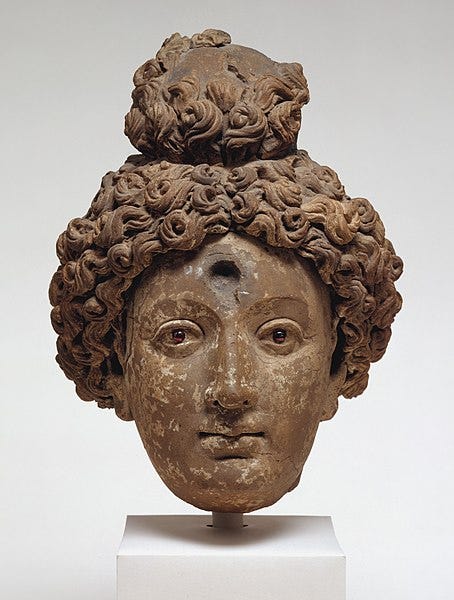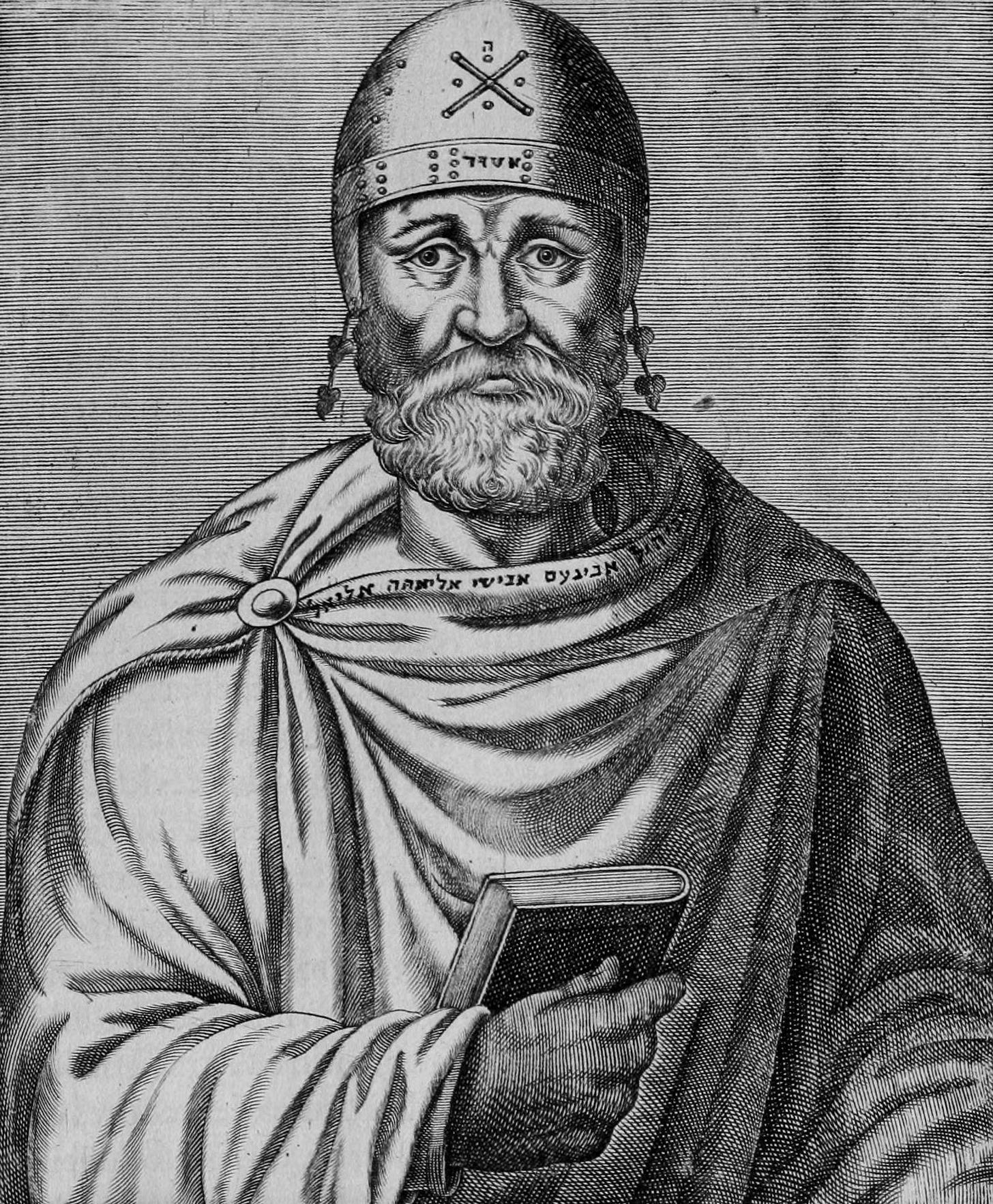This second and final instalment of my series concerning ancient attitudes on race and ethnicity leads me deeper into a brief textual analysis of Greek and non-Greek authors. Consider this a closer look at some prominent works to determine how concerned the ancients were with establishing definitive markers between people groups.
I’ll be looking at Greek authors Herodotus (484 – 420 BC) and Polybius (200 – 118 BC), as well as non-Greeks Philo of Alexandria (15 BC – 50 AD) and Apostle Paul (4 – 64 AD).
As I have argued in my previous post, modern allegations of ancient forms of racism are bunk and distorted. Taking a broad view of evidence from ancient Greece, it is difficult to the point of futile to accuse the Hellenes of racism.
Principally because they didn’t have a neatly defined word for race and ethnic. But also because they had contradictory views of non-Greeks (Barbarians). Modernity’s insistence on seeing race (and racism) indicates how race-based our values are, not the values of antiquity.
Horrendus Herodotus?
Last time we looked briefly at Homer and Aristotle. Like them, other Greek authors were at times curious, appalled, and other times amazed by non-Greeks (Barbarians). What we do not observe, however, is an outright alienation of non-Greeks.
There’s a prevailing view that Herodotus alienated non-Greeks through his beliefs in environmental determinism (Asheri et al. 2007: 262; How & Wells 1912: II, 36–337; Thomas 2000, 104–5; Isaac 2004: 58–9). That is, the belief that your environment determines how you look and act.
However, this is anachronistic (a projection of a modern idea unto the past) and an utterly shallow analysis of his views.
Although Herodotus postulates the relationship between a people’s environment and customs, he does not use environmental determinism to isolate peoples.
For example, when Herodotus links Egypt’s difference in laws and customs to their unique climate influenced by the river Nile, nowhere does he attribute the customs to the unique Egyptian climate.
Instead, Herodotus tangentially entertains how geography interacts with culture without providing a detailed analysis of the causal relationship between the environment and cultural outcome.
He reports on Egyptian customs that women work while men stay at home and provide for the children; daughters are expected to support their parents, but sons do not bear any responsibility; and that Egyptians are the most god-fearing peoples of all (Htd. 2.35–42).
However, Herodotus does not seem to explain how these peculiarities are a product of their environment. More importantly, Herodotus doesn’t list these idiosyncrasies with a sense of superiority over the Egyptians.
In fact, in another section, the author names a cannibalistic tribe among the Scythians without any scorn or ethnic criticism.
Although characterising them as an ethnos distinct from the rest of the Scythians and being the wildest peoples (ἄγριώτατα), judgement for the baseness of their ethnicity is absent (Htd. 4.106).
Furthermore, physical markers of ethnicity are absent in Herodotus’ work, like the kind you might find in Darwinist literature of the 19th century.
Despite at one stage describing, for example, people in Libya who are dark and shorter in stature than the average individual, he does not proceed to use this characteristic as a phenotypical feature of the Libyans (Htd. 2.32.6–7).
So too, with the Ethiopians. Even though they are the tallest and most handsome of all men, Herodotus does not take their physical features as a defining characteristic of their people. These comments are instead made as passing observations (Gruen 2020: 50).
The “father of history (ethnography)” isn’t concerned with defining what makes an ethnos (ethnicity), let alone pass criticism on non-Greeks (Gruen 2020: 55).
Despite being offered a repertoire of bizarre and foreign case studies, Herodotus seems entirely disinterred in drawing rigid distinctions between peoples.
Polybius: Gauls with Gall

Similar to Herodotus, Polybius primarily employs “barbaros” as a label to designate non-Greeks (eg. Polyb. 5.33.5–6, 5.104.1, 8.9.6). A prime example of this can be seen in his treatment of the Gauls.
Polybius presents the Gauls as an enemy for his Roman readers (Berger 1992: 105–26; 1995: 517–25). From Rome to Delphi, the Gauls ravaged the Greco-Roman world (Livy, 5.33–44). Consequently, the Gauls were perceived with contempt.
They had a reputation for avarice and duplicity (Williams 2001: 18–69). The Gauls habitually annexed the land of neighbours and allies (Polyb. 2.7.5–6, 2.19.3–4). They showed no temperance in drinking, among other passions (Polyb. 2.19.4; 2.32.8, 3.49.2, 3.70.4, 3.78.2).
Polybius goes as far as to characterise Gauls on multiple occasions as possessing ἀθεσία or being fickle and unreliable (Polyb. 2.32.8, 3.49.2, 3.70.4, 3.78.2). However, this is far from the complete picture that Polybius paints of these people.
Portrayed with redeemable undertones, Gauls had respectable and sympathetic qualities that made them formidable rivals of Rome.
They were of impressive stature (Polyb. 2.15.7, 3.34.2, 5.111.2.) and sometimes possessed gusto and intellectual prowess (Polyb. 21.38). Gauls inspired fear on the battlefield by mounting awful bravery (Polyb. 2.18.1–2, 2.35.2).
Moreover, Polybius ascribes the re-escalation of hostilities between the Romans and Gauls in 232 BC to the Romans. The Romans were the aggressors, often employing genocides, while the Gauls were presented as tragic victims of Rome who were valiantly defending their homeland (Polyb. 2.21.7–9).
This nuanced and ambiguous view of the Gaul hardly becomes an example of cultural alienation despite some scholars arguing the contrary (Foulon 2000: 319–54; 2001: 35–64). Viewed as a whole, Polybius’ treatment of the Gauls, and Barbarians in general, suggests that a degree of sympathy is extended to non-Greeks.
Indeed, the Anatolian settlement of Gauls and their later absorption suggests that the Greco-Roman world was overwhelmingly compatible with their once rival.
Employed as mercenaries in the Hellenistic world and their acceptance in a new Judeo-Roman religion, Christianity, the Gauls, once the rival of Hellenism, became part of the entrepot of the Greco-Roman world.
Philo of Alexandria: Tradition Trumps Tribe
On the opposite side of the exchange, where did Greek writers of non-Greek extraction fit within the Greek/Barbarian paradigm?
Philo and Apostle Paul may serve as appropriate case studies since a sizeable body of their work has survived. Philo was a Jewish philosopher who was an apologist of his Hebrew heritage while simultaneously conversant with the corpus of Greek literature.
He did not outline any prevailing incongruences with the Septuagint and Hellenic traditions (Borgen 1984: 108–115; Barraclough 1984: 421–441; Morris 1987: 813–819; Schwartz 2009: 9–31; Seland 2014: 3–9; Niehoff 2018: 1–18).
In line with the Hellenic tradition, Philo employs the categories of Greek and Barbarian (Philo Spec. Leg. 1.211, 2.44; Mos. 2.27; Prob. 138; Legat. 8, 141; Opif. 128; Conf. 6. 190; Ebr. 193; Decal. 153; Praem. 165; Prov. 2.15; Abr. 136; Jos. 134).
However, the Jews have a special place in the Barbarian category that even Greeks could learn from (Berthelot 2007: 47–61).
Unlike Greeks and other Barbarians, the Jews did not worship their creations (idolatry) (Berthelot 2007: 59; Philo, Spec. Leg. 2.165–166). And Moses is a lawgiver par excellence in the ancient world whose laws cultivate virtue. This distinct category of laws set the ethnos of the Jews apart from the Egyptians and later passed down to their descendants (Philo, Spec. Leg. 4.179–181).
As such, Philo carries on the Abrahamic tradition of advising Jews not to marry outside their clan. However, this edict is not issued with racial supremacy in mind. Instead, exogamy was resented only because of the risk of sullying Jewish traditions with the import of heretical practices (Philo, Spec. Leg. 3.29).
Compromising the virtuous laws of Moses and the worship of the living God was the purpose of endogamy and not racial purity. On the contrary, Philo trivialises συγγένειαι (blood relations) by allegorising kinship.
The kinship between the Jews is not based on blood alone but on goals and values. Consequently, he highlights a transcended form of συγγένειαι amongst whoever abides under the same law, constitution and God who has chosen them (Philo, Spec. Leg. 4.159).
This value is illustrated by Philo’s reflection on Moses’ righteous indignation for the creation and worship of the golden calf while on Mount Sanai. Moses orders the heretics to be cast aside and executed, fellow kinsmen and friends alike (Philo, Mos. 2.169–171).
Rather than blood relations, true kinship transcends biology. The markers of kinship and friendship are the piety of good men and the worship of God (Philo, Mos. 2.169–171; Philo, Spec. Leg. 1.317).
Philo, once more, allegorises Abraham’s wives: the Jewish Sarah and the Egyptian Hagar. The former embodies grammar, geometry, music, and rhetoric; the latter embodies wisdom, philosophy, and virtue.
However, both are equally needed to achieve virtue (Pearce 2007: 167–77; Philo, Congr. 24).
In one of a few critical cases, though, Philo hyperbolically chastises Egyptians for being naturally inclined to commit sedition and jealousy (Philo, Flacc. 17, 29; Philo similarly derides Egyptians due to contemporary events in Legat. 166).
The context of these decisions is the anti-Jewish riots in Alexandria (Gruen 2020: 158-9). Moreover, Egyptian zoolatry is an object of criticism for Philo (Smelik & Hemelrijk 1984: 1955–97; Sonnabend 1986: 120–4).
But this was not an exclusively Jewish criticism as Greek and Roman authors likewise expressed contempt (Pearce 2007: 280–308). Despite this slander, Philo never portrays Egyptian culture as subterranean.
Contrarily, the Egyptians taught Moses, their national hero, mathematics, music, Chaldean astronomy, and the philosophical symbolism of hieroglyphics (Philo, Mos. 1.23–24).
Philo goes as far as to directly pay respect to Egypt’s large population, antiquity, and philosophical devotion (Philo, Spec. Leg. 1.2).
As a whole, Philo’s critical yet generous treatment of Egyptians, among other Gentiles, problematises arguments that the Jewish scholar was attempting to form a Jewish identity by “othering,” despite statements to the contrary (Pearce 1998: 88–97; Niehoff 2001: 45–74).
Philo goes as far as to convey Abraham, the Jewish patriarch, as a Chaldean proselyte who set the example of how non-Jews should be treated (Philo, Virt. 219; Somn. 1.160).
Moreover, a central component of the Jewish identity was integrating converts of other lands (Philo, Virt. 182; Mos. 2.44; Spec. Leg. 2.118–119; Legat. 211).
Tradition and faith trumped race and genealogy.
Yes, Jews are Barbarians governed by the superior law of Moses and in a special covenant with the Creator of the universe. However, Greeks and other Barbarians are part of that story, intricately intertwined within the formation of the Jewish story.
Apostle Paul: Individual Actions Over Collective Identity

The Jewish identity sees the same broad and blurry treatment by a certain 1st-century Jew and Roman citizen: Paul of Tarsus or Apostle Paul. In a letter to a province named after its Celtic settlement, Galatia, Paul writes to the assembly:
There is neither Jew nor Greek, slave or free, male or female for all those in Christ Jesus (Gal. 3:28).
The context of the epistle is that certain Jewish members of the congregation were adamant that non-Jews needed to keep the law of Moses and be circumcised for salvation. At first glance, Paul appears to have a binary view of nationality, as well as sex and status.
In other instances, too, Paul separates Greeks and τὰ ἔθνη (the nations, ie. Gentiles) from the Jews (Rom. 3.29; 9.24; 1 Cor. 1.23; Gal. 2.14–15). Scholars have argued that Paul conceptualises humanity dichotomously: Jews and the rest (Holladay 2003: 452; Johnson Hodge 2007: 52; Wan 2009: 144–5; Stanley 2011: 118).
Indeed, Paul speaks of God’s priorities for salvation as “first toward the Jew, and also to the Greek” (Rom. 1.16, 2.9–11, 3.9, 10.12).
However, this differentiation is not based on a definition of race. A clue is offered in the epistle to the Colossians, where the delineation between Jews and others is instead conceived as “Greek and Jew, circumcised and uncircumcised” (Col. 3.11).
The factor of circumcision is one of ritual tradition rather than biological heritage. However, like Philo, Paul trivialises the Jewish kinship itself with individual action. Once more, in Romans, on the topic of whether non-Jews need to be circumcised, Paul emphasises the importance of “acting” circumcised: “…a person is a Jew who is one inwardly, and circumcision is of the heart…” (Rom. 2.29).
Indeed, our initial scripture from the Galatians 3:28 emphasises the subversion of categories, including race, through the unification of Jesus Christ (Gal. 3:28: … πάντες γὰρ ὑμεῖς εἷς ἐστε ἐν Χριστῷ Ἰησοῦ”).
Even so, it might be noted that Paul does not think Greeks are Jews. In a rare commentary on the challenges of Jews compared to Greeks, Paul writes, “Jews require signs, and Greeks seek wisdom” (1 Cor. 1:22-31).
As such, the preaching of Christ crucified becomes “a barrier for Jews and foolishness for the Greeks (1 Cor. 1.22–23). In Paul's missionary endeavours, individual strategies needed to be implemented to engage the subtle proclivities of each culture.
Paul remarks, “to the Jews I became a Jew, to win the Jews…. To those not under the law (Gentiles), I became like one not having the law (though I am not free from God’s law but am under Christ’s law), to win those not having the law” (1 Cor. 9:20-22).
Moreover, although Paul is all things to all people, he does not deny the biological inheritance of the Jewish people (Johnson Hodge 2007: 50; Sechrest 2009: 141–152).
Abraham is “our forefather in accordance with the flesh,” and the “seed of Abraham” are the Israelites (Rom. 4.1; 2 Cor. 11.22; Esler 2003: 171–194). But again, the racial delineations are not so clear-cut.
For example, immediately after our initial scripture in Galatians 3:29, Paul writes, “if you are in Christ, you are Abraham’s seed and heirs according to the promise” (Gal. 3: 28-9).
Paul again undermines clear racial barriers and extends the ethnic promises of the Israelites to non-Jews through the belief in Jesus Christ.
Like Philo, Paul distinguishes the covenant of the Jews with God, but the belief in Jesus allows non-Jews to participate in that covenant. Ethnicity and race are subverted by the universal salvation found in Christ.
Conclusion: “Universalism”

As briefly observed in this series, ancient peoples were largely ambivalent about ethnicity. We are not made privy to any work dedicated to the topic of ethnicity and race from antiquity. Instead, we are left with scattered evidence that often contradicts itself.
And that is precisely the message communicated to us: ancient peoples were content with the inexactness of “us and them.”
“Barbarian” did not unequivocally denote savagery and baseness. Instead, there is a profound problematisation of Barbaroi by authors like Herodotus, Polybius, and Philo.
On the one hand, for Greeks, the term denoted an allusion to cultural inferiority. However, Greek authors never passed judgement on non-Greeks due to some innate sub-humanity but saw the remarkable qualities of Barbarians.
For the Greeks, the term was designated mainly to the political enemies of certain Greek people, including other Greeks. For non-Greek authors, too, Barbarians and Gentiles were terms assigned to nations outside their tradition.
Philo, who operates in the Greek paradigm, employs the dichotomy of Greek/Barbarian. But the Jews hold an elevated place amongst the Barbarians. The stringency of the Mosaic law cultivates what the Greeks revere: virtue.
It is no wonder that even the ardent Helleno-centrist, Aristotle, was impressed by the self-discipline of a Jew he came across in Asia-Minor, at least according to Josephus (Jo. Ap. 1. 176-182).
However, the Jews themselves have an entangled history with Gentiles. The figure that wrote the laws that so distinguished the Jews, Moses, was taught and raised by Egyptians.
Likewise, Apostle Paul operates under the paradigm of universal salvation through Christ. Jews are the seed of Abraham, yet the inheritance of the Jews is open to Gentiles through the sacrifice of Jesus. Rather than an emphasis on ethnic collectivism, individual conduct overrides any cultural boundaries.
The complexity and inaccuracy of ethnicity in the ancient world suggest that the ancients were disinterested in definitive markers of people groups (Gruen 2020: 7).
By definition, the lack of rigid boundaries of ethnicity and race means that ancient peoples predominately viewed peoples outside their kin through a lens of commonality, interchangeability, compatibility, or universality of humanity and not as exogenous entities with whom they inherently lacked any connections to.
Without clear concepts of race, forming and participating in a common culture was a natural process. This extra-ethnic attitude, I argue, allowed the ancients to borrow and participate in different cultures while retaining their own.






